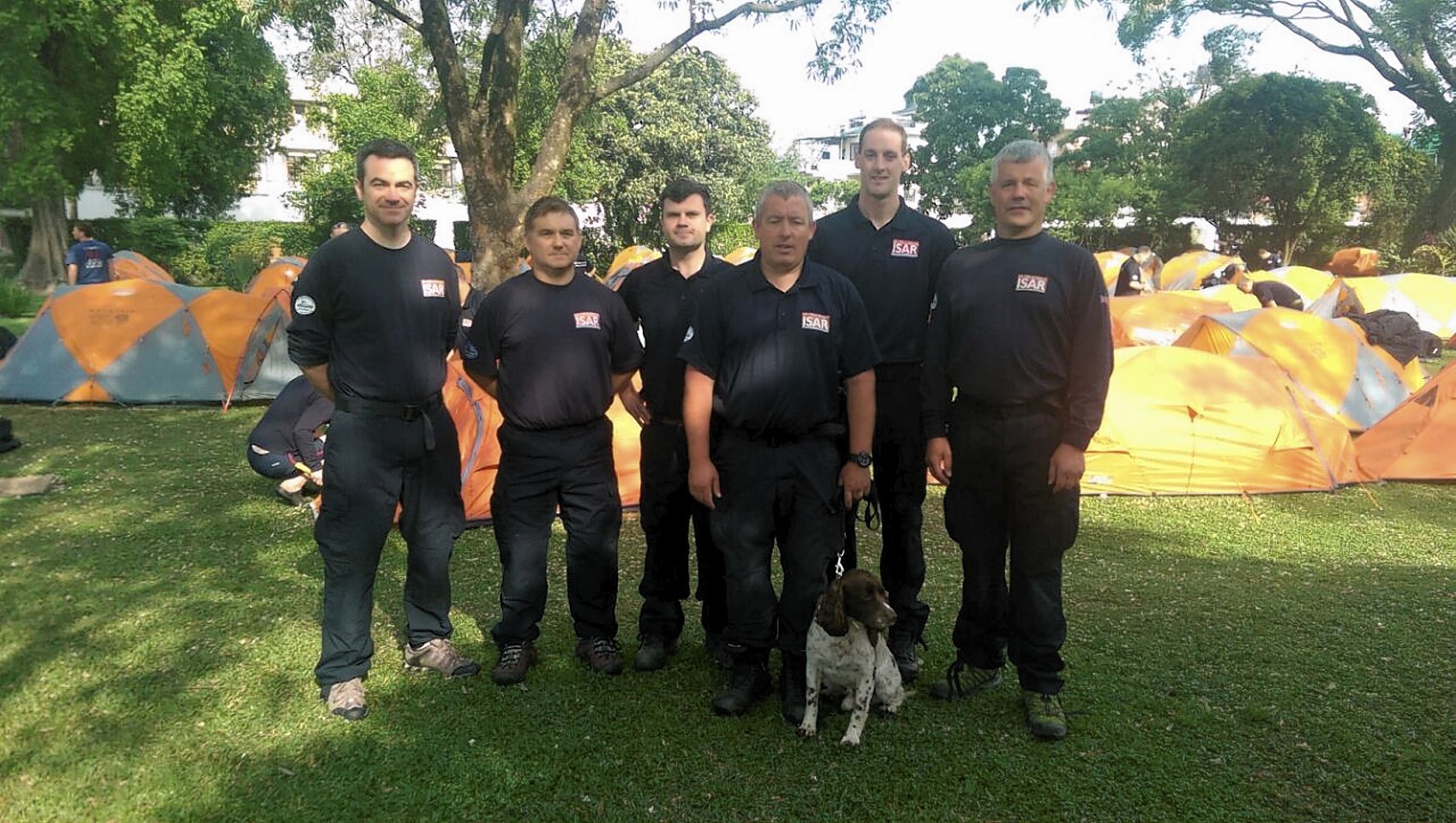A north-east firefighter who was sent to Nepal after the earthquake has described the “absolute devastation” he witnessed, with whole villages being reduced to rubble.
Martyn Ferguson, from Turriff, was part of the 60-strong UK international search-and-rescue team to be sent to the country in the wake of the April disaster, which killed almost 9,000 people and left about 900,000 homes damaged or destroyed.
The 49-year-old spent 12 days in the country, but his team failed to find any survivors during their searches of the destroyed buildings.
He revealed yesterday how some children in remote villages had been left with serious injuries which went untreated for days until his team arrived.
Mr Ferguson, who was speaking at an event at international aid charity Mercy Corps’ Edinburgh headquarters, said: “In the outlying villages there was absolute devastation.
“There were whole villages where there was 90% to 100% devastation – just a pile of rubble, nothing left.
“We were going into areas and clearing buildings, using our dogs to run over the buildings. They are trained to indicate on a live person, but within our team that didn’t happen.
“It was totally alien to what we are used to as firefighters in Scotland.”
Mr Ferguson was one several volunteers to meet with the UK’s International Development Minister Desmond Swayne ahead of the three-month anniversary of the 7.8 magnitude earthquake which struck on April 25.
He recounted how he and four of his colleagues found themselves on a flight to Nepal just hours after the earthquake struck.
Once on the ground, he led a team of firefighters, accompanied by a search dog, its handler, and medics, as they battled the heat and rugged terrain, camping out in the UK ambassador to Nepal’s garden by night.
Mr Ferguson praised the Nepalese people for their resilience and courage despite their loss. Some survivors were also left waiting on medical treatment for days.
“Although they were classified as minor injuries, they would be quite serious – such as little girls with broken arms that hadn’t been dealt with, they had been five days and they had no medical treatment whatsoever until we reached them,” he said.
“One little girl, her father had carried her for four days before they got to a village with support. They were very grateful, really
pleased to see us.
“They dealt with it and they were getting on with their lives, and that is the one thing I found amazing.”
